How To Use Jojoba Oil For Acne
Using this oil the right way can help manage those pesky bumps and improve your skin health.
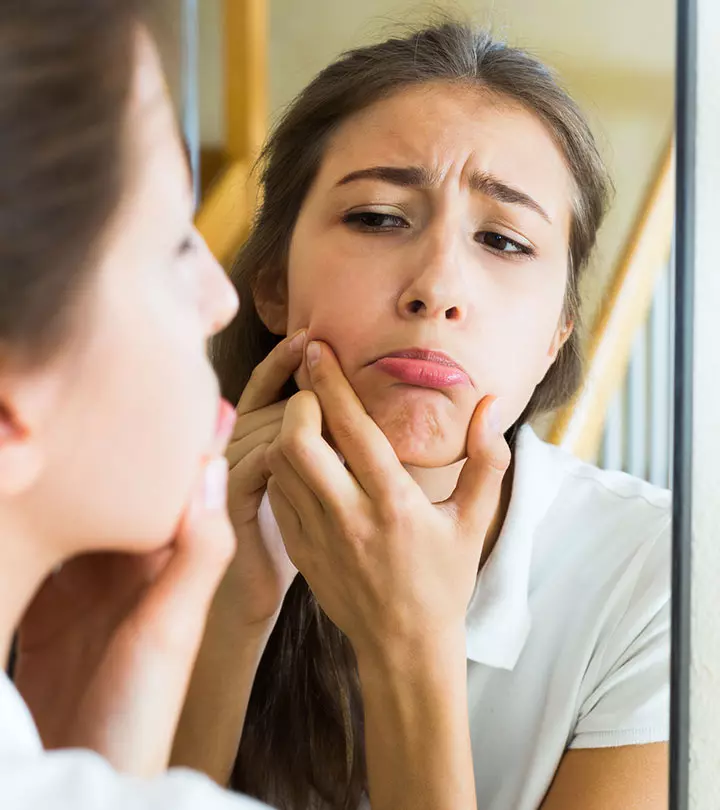
Image: Shutterstock
It is a common misconception that all facial oils clog the pores and worsen your acne. On the contrary, some oils can benefit your skin and acne. For instance, you can use jojoba oil for acne management and improve your overall skin health. Wondering how? This article explains why jojoba oil should be a part of your acne skin care routine and how to use it. Scroll down.
 Trivia
TriviaIn This Article
Why Use Jojoba Oil? What Are The Benefits?

Jojoba oil is extremely gentle on your skin and is mostly used as a carrier oil. It is also a common ingredient in skin care products. Many women use it as a part of their skin care routine because of the wonderful benefits it offers. They include:
1. It Has Moisturizing Properties
Jojoba oil acts as a humectant. It prevents loss of moisture from your skin (1). According to Dr.K.Harish Kumar, MD, DVL, jojoba oil keeps your skin soft and supple. It is especially beneficial for those who have dry skin. You can use it with or without essential oils.
2. It Has Antibacterial Properties
Jojoba oil has antifungal and antimicrobial properties. A study showed the antimicrobial activity of jojoba oil against several species of bacteria and fungi, such as E. coli, Candida albicans, Aspergillus flavus, Salmonella typhimurium, Bacillus cereus, and Clostridium perfringens (2).
3. It Can Heal Wounds
The anti-inflammatory effects of jojoba oil make it an effective remedy for a variety of skin conditions. A study found that jojoba oil could heal wounds and facilitate collagen synthesis (3).
4. It Improves The Efficacy Of Skin Care Products
A study states that jojoba oil can enhance the absorption of topical medicines and other skin care products (4). Now you know how to make your topical medication and skin care products work better!
 Did You Know?
Did You Know?Apart from taking care of your skin, jojoba oil also helps in improving acne. Researchers examined the efficacy of jojoba oil in acne management and found it helpful. Let’s check out what they found.
Jojoba Oil For Acne: How Effective Is It In Managing Acne?

A study evaluated the efficacy of clay jojoba oil mask on acne lesions. The pilot study involved 194 participants (192 females and 2 males). For six weeks, they applied the clay jojoba oil mask, two to three times a week. Out of 194 participants, only 133 returned the total lesion count after the study was over. It was found that after six weeks of treatment, there was a 54% reduction in the lesion count (both inflammatory and non-inflammatory) (5). Moreover, as a liquid wax, jojoba oil can dissolve sebum buildup in hair follicles. It penetrates deeply to clear out clogged pores, helping to improve skin clarity (6).
From moisturizing your skin to acne management, jojoba oil addresses many skin care issues with ease. It’s not too difficult to fit it into your daily skin care and acne management routine. Here’s how you can do that.
How To Use Jojoba Oil For Acne

1. Use It With Your Clay Mask
Mix bentonite clay with jojoba oil (take equal parts as per the area you will be using it on). Mix well and apply to the affected area (or your entire face and neck). Let it dry. Wash it with warm water. Do not rub too hard; massage gently while removing the mask. Try this mask two to three times a week.
2. Use It As A Face Moisturizer
Take two tablespoons of aloe vera gel and two tablespoons of jojoba oil. Add both to a glass jar and mix well. Use this mixture as a moisturizer. Apply it to your face and massage for a minute. You may use it any time of the day, especially before retiring to the bed.
3. Mix It With Your Daily Cream
You can mix jojoba oil with your daily skin cream or gel and apply to your face. You can also combine jojoba oil with your face oil and massage on your face and other affected areas.
4. Use It Directly
You can also apply jojoba oil directly to your face or the affected area. Take a few drops of jojoba oil and apply it to your face and neck. Massage it gently for a minute or two. Do not wash. It is better to leave it on overnight.
Here in this YouTube video, she shares her four-night experiment with jojoba oil for skincare. She emphasizes that jojoba oil is a promising start for acne treatment, detailing her experience with varying application amounts. She mentions, “I applied a lot more water on my face and like a very tiny drop of jojoba, not tiny drop, it was like the tip of my pinky for the whole face, and it was awesome (i).” She further adds, “Waking up actually I find that I don’t wake up with like an oil slick on my forehead because that used to happen.”
So far, there have been no studies on the potential risk factors of using jojoba oil. However, you cannot rule out the chances of adverse effects.
Are There Any Potential Risks Of Using Jojoba Oil?
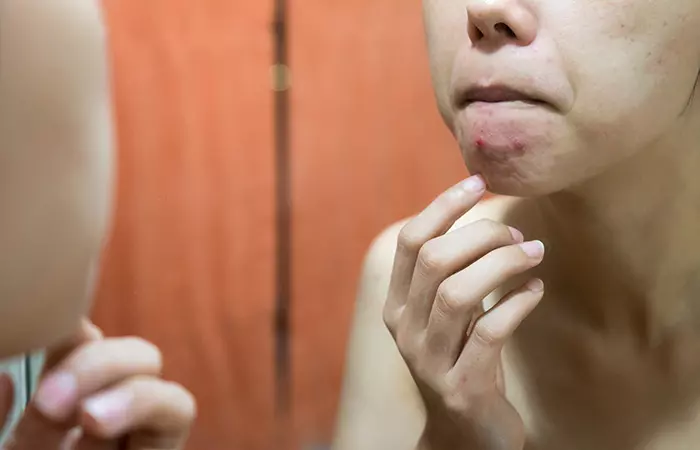
Jojoba oil is considered safe for topical application (unless you are allergic to it). It is always better to do a patch test before applying it to your face. Apply a small amount of the oil to a small, hidden area of your skin, like the inside of your wrist or elbow. Wait about 24 hours to see any redness, itching, or irritation, especially if you have sensitive skin. This step helps rule out any possibility of an allergic reaction.
Prolonged use might cause rashes and irritation. It might even give you hives and cause allergic reactions or swelling of the throat, face, tongue, and lips.
Also, it’s not recommended to consume jojoba oil. If you are pregnant or lactating, consult a doctor before using jojoba oil.
Finding the most effective remedy for acne can be tough – because the result may vary from person to person. And when it comes to natural healing methods, results will differ. If jojoba oil works on your acne lesions, good for you. But if it doesn’t help, don’t be disheartened. There are plenty of other ways to treat acne. Consult a dermatologist in case you do not see any improvement or if your condition worsens.
Finding the most effective acne treatment can be tough. It is because the results may differ from person to person. What worked for others may not work for your skin. This is also true for home remedies. If you have used jojoba oil for acne and experienced positive results, that is good. For many, Jojoba oil is a great option for tackling acne because it hydrates the skin, fights bacteria, and doesn’t clog pores. Adding it to your skincare routine can help you achieve healthier, clearer skin. Just be sure to pay attention to how your skin reacts and consult a dermatologist for stubborn acne issues. However, do not be disheartened if it does not work for your acne lesions. There are many other effective treatment options to minimize acne. If you have severe acne, home remedies may not work, and you may need more aggressive treatment. Therefore, consult a doctor for proper diagnosis and follow the prescribed treatment. We are sure you will see improvement.
Frequently Asked Questions
Can I use jojoba oil on my face daily?
Yes, you can use jojoba oil on your face daily to keep it hydrated and nourished.
Is jojoba oil good for cleansing your face?
Yes, you can apply jojoba oil directly or in combination with natural ingredients to cleanse your face daily.
What is jojoba oil’s chemical composition?
Jojoba oil’s chemical makeup varies based on the jojoba plant type. It consists of approximately 98% of liquid wax, which comes from almost 50–52% of the total seed weight. It contains a very small amount of free fatty acids, alcohols, vitamins A and D, and hydrocarbons (6). The primary fatty acids in extracted jojoba oil are gadoleic acid (67.85–75.50%), erucic acid (12.60–14.81%), and oleic acid (7.86–10.99%) (7). The composition of jojoba oil depends on the specific jojoba plant, with gadoleic acid present in the highest quantity, followed by erucic acids and oleic acid respectively.
Key Takeaways
- Jojoba oil has antibacterial, antimicrobial, and moisturizing properties and offers numerous benefits for the skin, including acne management.
- It has anti-inflammatory properties and may help manage acne lesions, minimizing discomfort, and providing clear skin.
- Include jojoba oil in your skin care routine by mixing it with your DIY masks, and creams, or use it directly on your skin as a moisturizer.
- However, avoid using jojoba oil if you are allergic to it as it may irritate the skin and cause rashes, swelling, etc. Always do a patch test before using it.
There are numerous benefits of jojoba oil, especially for acne-prone skin. Watch the video to see the transformative journey of the creator and also get to know how she incorporates this oil in her skin care routine.
Personal Experience: Source
StyleCraze's articles are interwoven with authentic personal narratives that provide depth and resonance to our content. Below are the sources of the personal accounts referenced in this article.
(i) My Jojoba Oil Experience – Trying Natural Skin Care To Cure Acnehttps://www.youtube.com/watch?v=bg2QNH5j4acReferences
Articles on StyleCraze are backed by verified information from peer-reviewed and academic research papers, reputed organizations, research institutions, and medical associations to ensure accuracy and relevance. Read our editorial policy to learn more.
- “Characterization, sensorial evaluation and moisturizing...” International Journal of Cosmetic Science, US National Library of Medicine.
- “A review on plant importance, biotechnological…” Biological Research, US National Library of Medicine.
- “Wound healing properties of jojoba...” Journal Of Ethnopharmacology, US National Library of Medicine.
- “Jojoba in dermatology...”, Giornale Italiano di Dermatologia e Venereologia, US National Library of Medicine.
- “Clay Jojoba Oil Facial Mask...” Research in Complementary Medicine, ResearchGate.
- “Jojoba Oil: An Updated….” Polymers (Basel), US National Library of Medicine.
- “Evaluation of the Effect….” Molecules, US National Library of Medicine.
Read full bio of Dr. K. Harish Kumar
Read full bio of Ramona Sinha
Read full bio of Anjali Sayee
Read full bio of Monomita Chakraborty





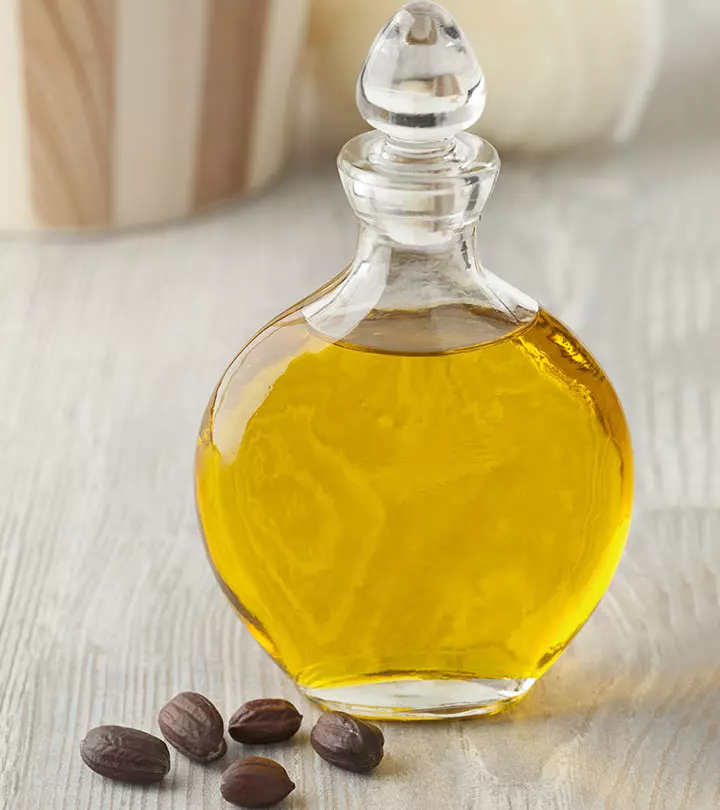
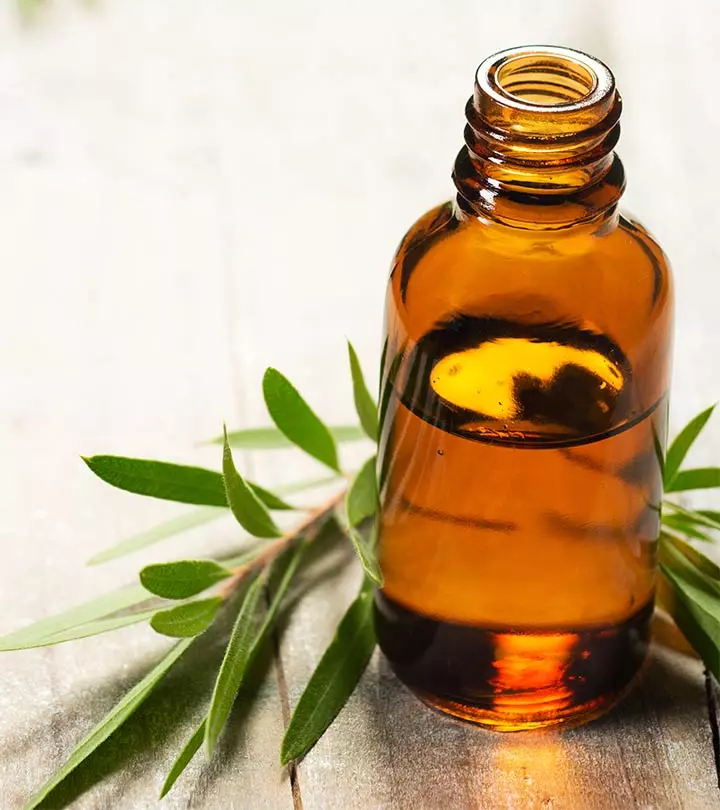
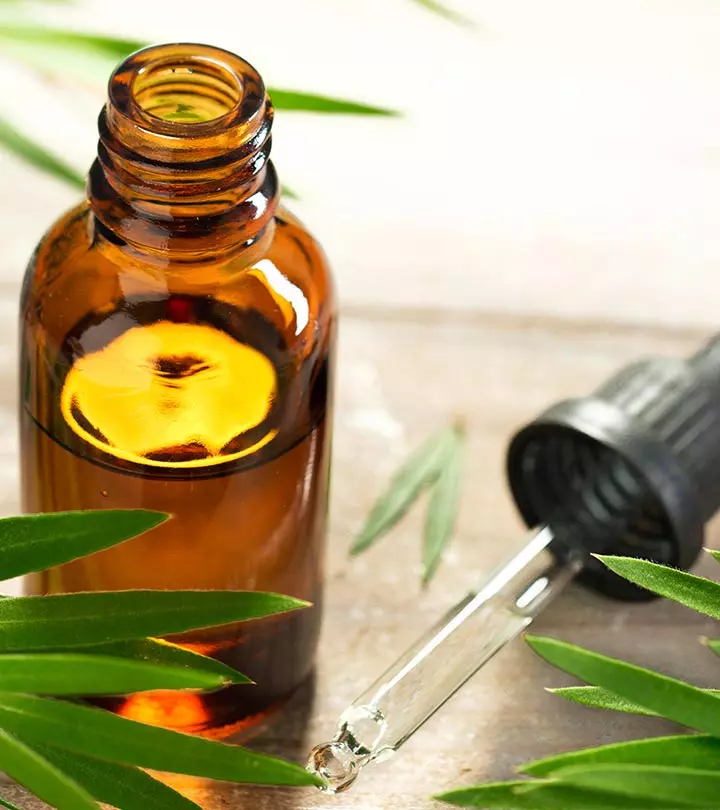
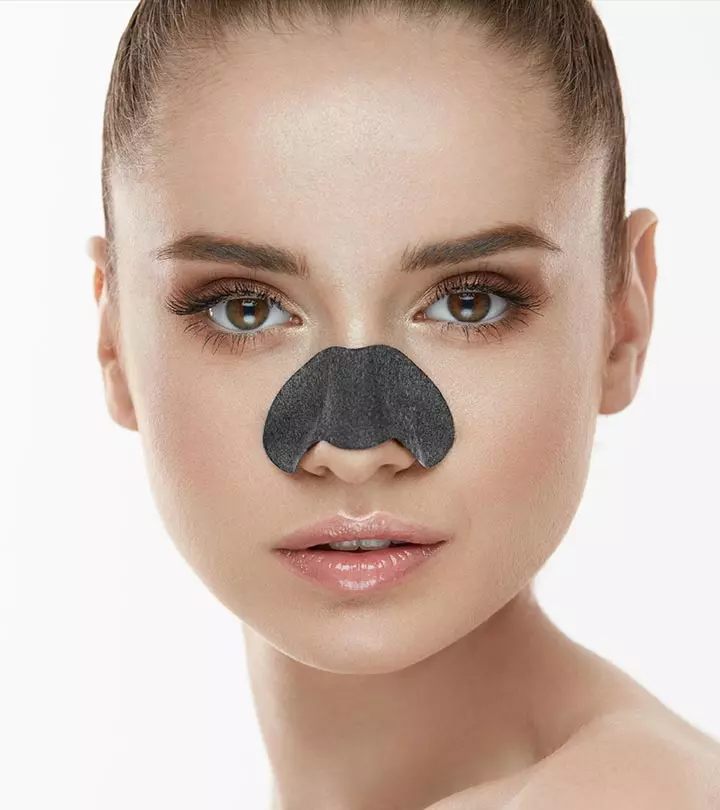
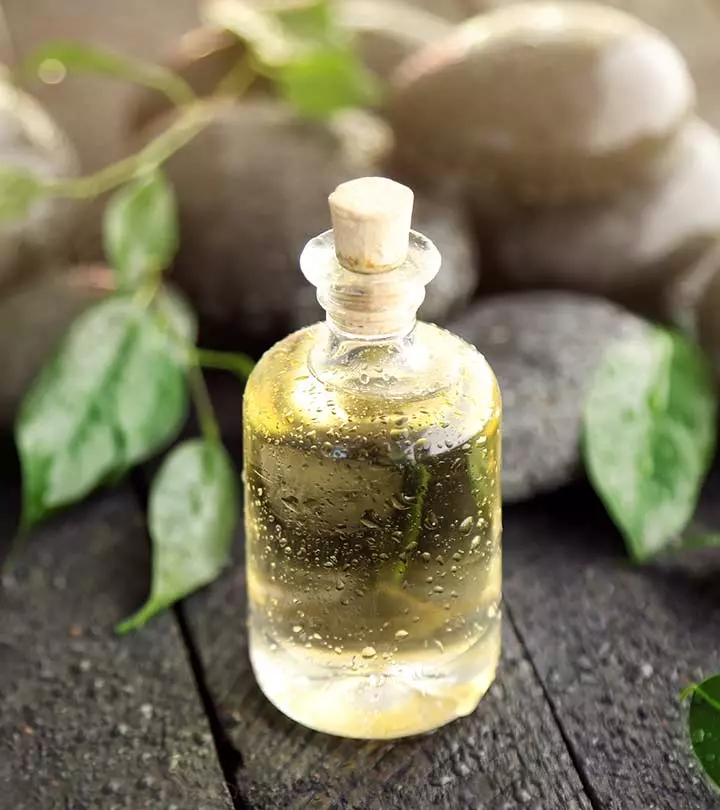
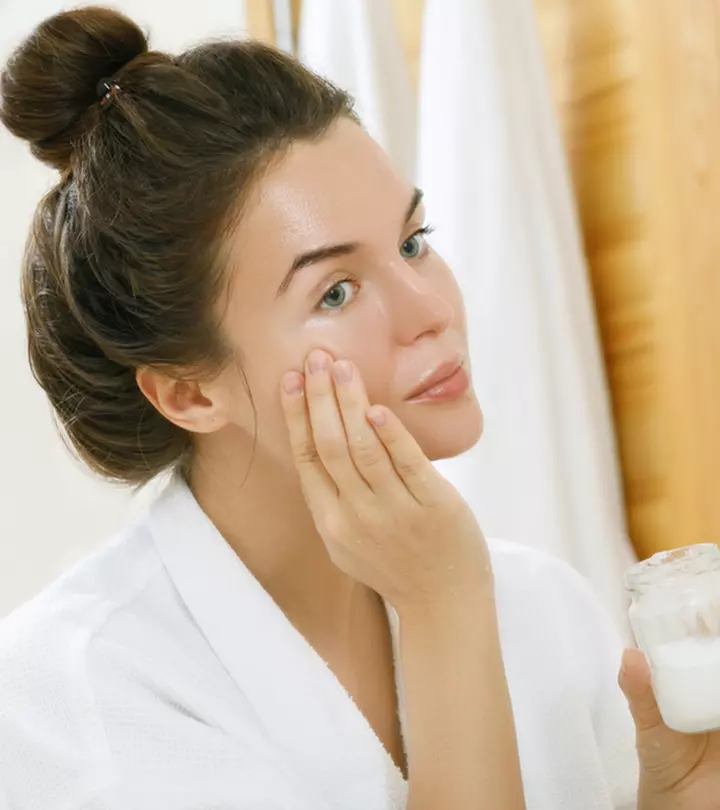

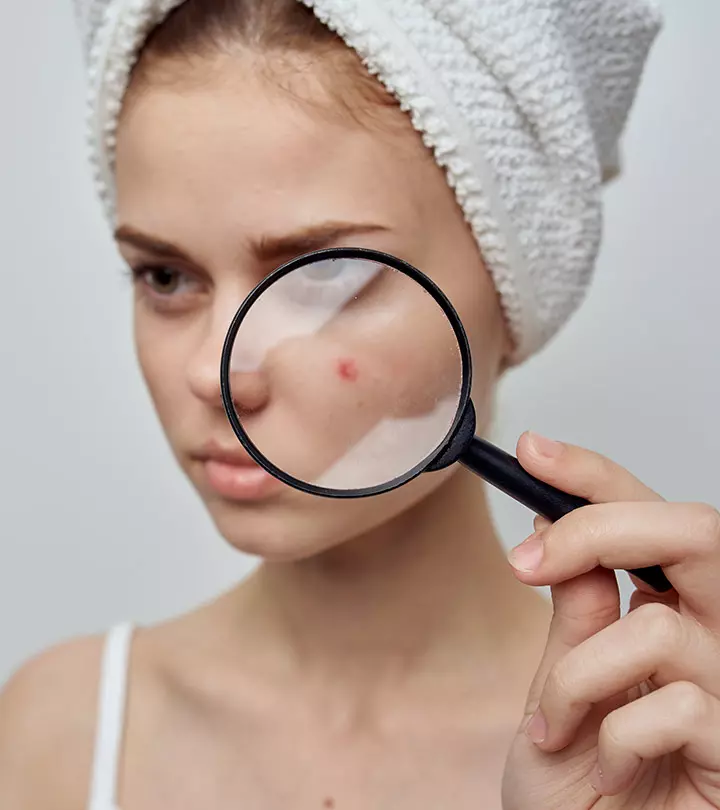


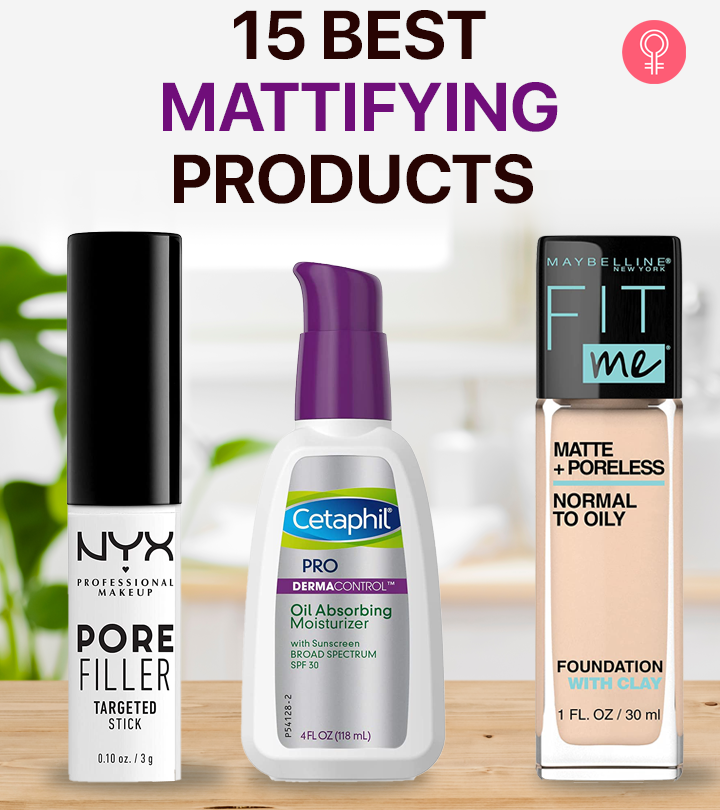


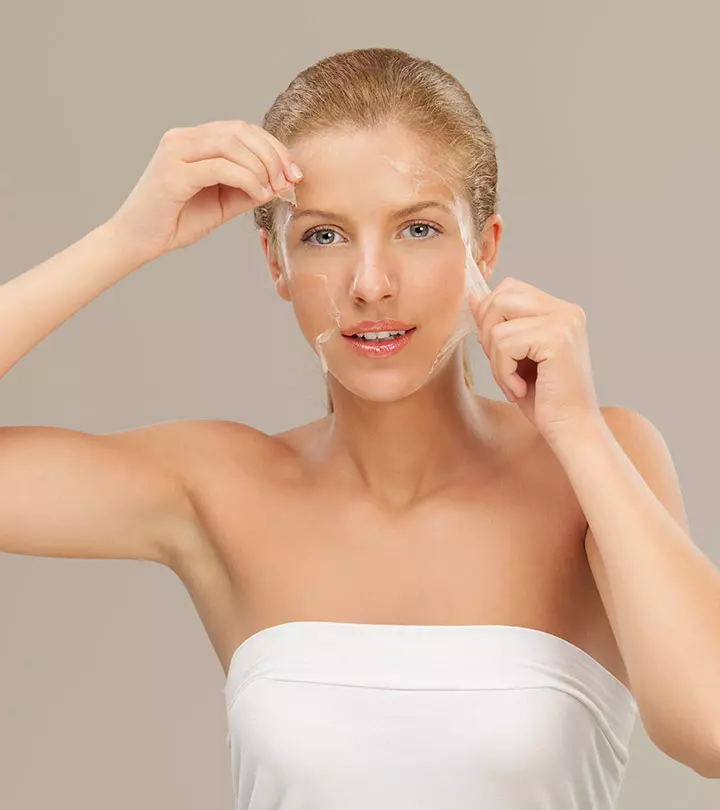


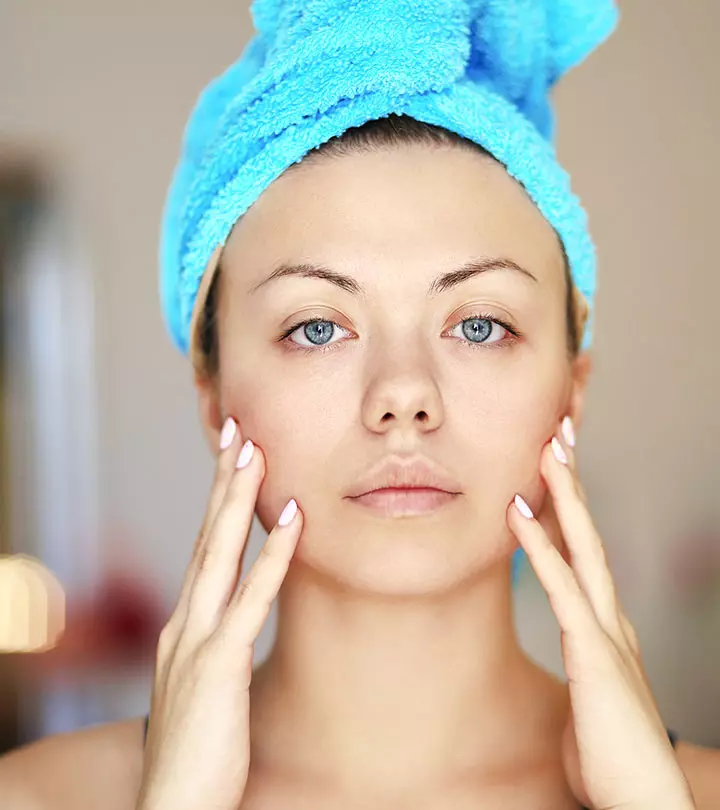



Community Experiences
Join the conversation and become a part of our empowering community! Share your stories, experiences, and insights to connect with other beauty, lifestyle, and health enthusiasts.